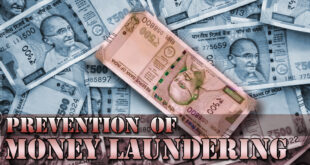This week Election Commission officials assessed the poll preparedness of Telangana after Chief Minister K. Chandrasekhar Rao dissolved the Assembly and sought a fresh election months ahead of schedule. Riding on populist measures — the government has announced more than 450 schemes in four years — Mr. Rao decided to go early to the people to seek a second term. What are the key schemes? Populist schemes have been the order of the day in the State ever since Mr. Rao and his Telangana Rashtra Samithi took over the reins in 2014. Starting with a loan waiver to farmers in instalments spread over the last four years entailing Rs. 16,124 crore, the government announced sops for different sections periodically. Two of the latest schemes are Rythu Bandhu (farmers’ investment support scheme), involving an upfront payment of Rs. 8,000 an acre for two crop seasons a year, with a recurring cost of Rs. 12,000 crore every year, and Rythu Bima, for which the government will spend Rs. 976 crore annually on payment of premium for more than 30 lakh farmers. The government had already initiated other schemes like distribution of cattle to eligible members of the shepherds’ community and other backward classes with a huge subsidy of 50% to 75%. Add to this the promise of providing free power supply to the farm sector round the clock, with the government resolving to reimburse the cost incurred by the power utilities, estimated at over Rs. 5,000 crore. Coupled with the expenditure on the subsidies is the debt servicing burden, which in the Chief Minister’s own words was in excess of Rs. 2,000 crore every month, amounting to more than Rs. 20,000 crore a year. Where will funds come from? These schemes have been launched at a time when the State’s tax revenue for the financial year 2018-19 is pegged at Rs. 82,000 crore. Given the quantum of allocations for subsidies to different sections and the capital investment incurred through the construction of a series of major, medium and minor irrigation projects, which received an allocation of Rs. 25,000 crore, the State has kept the option of going for open market loans to the tune of Rs. 31,500 crore. The State, according to the Statistical Year Book 2017, had estimated expenditure on account of interest payment and debt servicing components to be around Rs. 11,338.6 crore, higher than the 10% limit fixed by the XIV Finance Commission on the total revenue receipts for availing relaxations under the Fiscal Responsibility and Budget Management Act. The government chose to borrow Rs. 3,750 crore as State Development Loan from the Reserve Bank of India in three tranches during the last one month alone, ostensibly to keep cash reserves ready for the second instalment of Rythu Bandhu due in October/November. It had already borrowed Rs. 6,000 crore for payment of the first instalment of Rs. 4,000 an acre to 52 lakh farmers.
Check Also
Anti Dumping Duty – protection of Domestic Industries by WTO
Concept : Governments impose anti-dumping duties as a trade remedy measure to protect domestic industries …
 Chinmaya IAS Academy – Current Affairs Chinmaya IAS Academy – Current Affairs
Chinmaya IAS Academy – Current Affairs Chinmaya IAS Academy – Current Affairs



